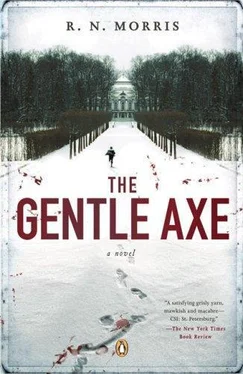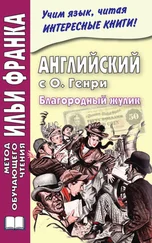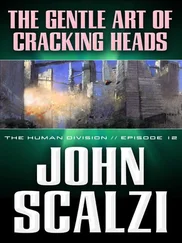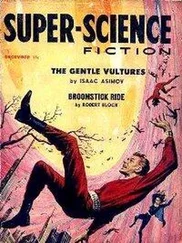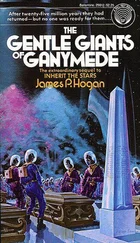R. Morris - The Gentle Axe
Здесь есть возможность читать онлайн «R. Morris - The Gentle Axe» весь текст электронной книги совершенно бесплатно (целиком полную версию без сокращений). В некоторых случаях можно слушать аудио, скачать через торрент в формате fb2 и присутствует краткое содержание. Год выпуска: 2008, ISBN: 2008, Издательство: Penguin Books, Жанр: Исторический детектив, на английском языке. Описание произведения, (предисловие) а так же отзывы посетителей доступны на портале библиотеки ЛибКат.
- Название:The Gentle Axe
- Автор:
- Издательство:Penguin Books
- Жанр:
- Год:2008
- ISBN:9780143113263
- Рейтинг книги:5 / 5. Голосов: 1
-
Избранное:Добавить в избранное
- Отзывы:
-
Ваша оценка:
- 100
- 1
- 2
- 3
- 4
- 5
The Gentle Axe: краткое содержание, описание и аннотация
Предлагаем к чтению аннотацию, описание, краткое содержание или предисловие (зависит от того, что написал сам автор книги «The Gentle Axe»). Если вы не нашли необходимую информацию о книге — напишите в комментариях, мы постараемся отыскать её.
The Gentle Axe — читать онлайн бесплатно полную книгу (весь текст) целиком
Ниже представлен текст книги, разбитый по страницам. Система сохранения места последней прочитанной страницы, позволяет с удобством читать онлайн бесплатно книгу «The Gentle Axe», без необходимости каждый раз заново искать на чём Вы остановились. Поставьте закладку, и сможете в любой момент перейти на страницу, на которой закончили чтение.
Интервал:
Закладка:
“It is significant because it raises the question of a third party,” persisted Porfiry.
“The nick could have been made at any time.”
“It is a fresh incision. And even if it is not connected to the case, there is still the question, who would make it, and for what purpose?”
“If it is not connected to the case, I don’t care.”
“It only makes sense if it is connected to the case.”
“But how? How does it make sense?”
“I don’t know yet,” admitted Porfiry. “But I shall.”
“What questions do you wish the forensic examination to answer?” asked Dr. Pervoyedov suddenly.
Liputin let out a sigh of defeat.
“What I am interested in knowing most of all,” said Porfiry, “is the cause of death in each case.”
“Preposterous!” exclaimed the prokuror.
The doctor nodded tersely and removed his overcoat, which he handed to the actual state councilor. The gentleman received it with dumb outrage and threw it onto the floor. But Dr. Pervoyedov had already turned to the tin trunk, from which he took out a rubber apron.
“One body with the noose still around its neck! The other with a hole the size of an axe blade in its skull!” cried Liputin.
Dr. Pervoyedov nodded tersely, a scalpel in one hand now. He seemed to hold the blade toward the prokuror with some intent. “Shall we begin with this fellow?” he said. And although he was standing over the larger corpse, the feeling that he meant Liputin was unanimous.
" Look at the eyes,” said Dr. Pervoyedov.
“What about them?” asked Porfiry.
“No blood,” said the doctor. “In cases of strangulation, it is normal for the eyes to fill with blood.”
The rope was embedded in the soft flesh of the throat. Dr. Pervoyedov severed it with a scalpel, stroking the blade across its cords delicately, careful not to nick the skin. Then he teased it out with a pair of elongated tongs.
“Here, this is interesting,” he said. “This is interesting!” He lifted up the beard for them to see.
His audience closed in, their heads almost touching above the corpse. They frowned over the deep furrow that the rope had left in the neck, then came up for air. The doctor found himself surrounded by blank faces.
“One moment. This will show you more clearly.” He took a razor from his trunk and shaved away the beard in one place.
“Still I see nothing,” said Liputin with some impatience.
“That is the point, your excellency,” said Porfiry. “I think,” he added, looking to Dr. Pervoyedov for confirmation.
“Precisely. Precisely,” agreed the doctor.
“Will you kindly stop talking in riddles,” demanded Liputin.
“No bruising,” murmured Salytov, with sudden realization.
Dr. Pervoyedov nodded energetically.
“Well done, Ilya Petrovich,” said Porfiry. Despite himself, Lieutenant Salytov experienced a small surge of pleasure at the praise. But immediately afterward he was annoyed with himself and hated Porfiry even more.
“Which means?” asked the prokuror uneasily.
“Which suggests, ” corrected Porfiry, “that he was already dead when he was suspended from the tree.”
“In a live subject, bruising is caused by blood being pumped to the damaged area of the epidermis. One does see marks, analogous to bruising, occurring in corpses post-mortem. But this is simply where the blood settles as the corpse lies on the ground.” As he spoke, Dr. Pervoyedov was cutting away the man’s clothes with a pair of tailor’s shears, splitting the cylinders of his sleeves and trouser legs, sectioning the panels covering the torso. “Otherwise, it is fair to say that dead men do not bruise.” At last the corpse was lying naked on a bed of tatters.
They all saw it, the purple line around the middle of the massive belly.
“And yet here there is bruising,” remarked Dr. Pervoyedov thoughtfully, pausing to record his observations in a small notebook.
“What do you make of that?” demanded Liputin.
“Nothing. As yet,” answered the doctor. “For the moment, I merely observe.” He touched the skin of the corpse in several places with his fingertips. This provoked an expression of distaste from the major general. The actual state councilor seemed rather surprised by it. “If one of you gentlemen could…” Dr. Pervoyedov mimed a pulling action as he cast a look of appeal in their direction. Neither picked up his hint. “I need to turn the body over,” he explained. “I must look at the back too.”
The expressions of the official witnesses turned to horror.
“Lieutenant Salytov,” directed Nikodim Fomich. “Kindly assist the doctor.”
“Allow me to lend a hand too,” offered Porfiry. He recognized a need to touch the skin, a need to understand something through that touch. The coldness of it he expected. But its soft, yielding compliance startled him.
Between them they hauled the naked corpse onto its front. The hirsute back showed no obvious marks.
“Interesting,” remarked the physician. “Very interesting.”
“What now?” snapped Liputin impatiently.
“Well, as you can see, the welt does not continue around the back.”
“And what conclusion do you draw from that ?”
“It is too early. Too early, sir. My conclusions, if I have any, will be in my report. You will have that soon enough.” Dr. Pervoyedov sought Porfiry’s eyes beseechingly. After a long pause he added, “Your excellency.”
Porfiry, Salytov, and the doctor turned the corpse back over.
Dr. Pervoyedov picked up the scalpel again and began the first incision, touching the blade to a point on the right shoulder. In the silence, Porfiry was very aware of his own breathing and of his heart pumping. He wondered if it was the same for the other men, for Liputin even. He wanted to look at Liputin. He wanted to say to him, Are you not glad to be alive? But he continued to watch the procedure that Dr. Pervoyedov was carrying out. The doctor drew the scalpel diagonally down to the middle of the sternum. He repeated the procedure from the other shoulder and then cut down the length of the torso, deviating around the umbilicus and completing the Y-shaped incision when he reached the dead man’s groin. It left a calm wound, dark and glossy but strangely bloodless. Porfiry frowned thoughtfully and cast an inquiring glance at the wound on the head of the other corpse.
He took out a cigarette and lit it, then looked back as Dr. Pervoyedov began to peel the skin away.
A Theatrical Type
Porfiry’s cheeks glowed pink from the icy air. He felt it only on his face. The rest of him was hot, swaddled in mink. His ankle-length shuba exaggerated the portliness of his physique, giving him the appearance of a large fur bell. The oversize ushanka on his head seemed to compress his form even more. The thoroughfares and open spaces of St. Petersburg were quiet and white. The buildings, both the grand stone edifices and the jerry-built wooden tenements squeezed between them, struck him as out of place. Imposed in a snowy vastness that was indifferent to them, they appeared fragile and dreamlike, no matter what arrogance or energy their construction implied.
Porfiry entered the great market of Apraxin Arcade from Sadovaya Street, near its corner with Apraxin Lane. Passing below the icon of Saint Nicholas that was suspended over the narrow wooden gate, he stepped into a dark, bustling universe. The music of a barrel organ clashed with the songs of woodworkers at their lathes and the cries of the itinerant vendors and the stallholders. Overhead, pigeons swooped with clattering wings and settled next to placid, mice-intent cats. Wooden bridges, hung with icons, spanned the passageways between the clustered booths, linking the upper stories. The areas of the market, and the trades that were conducted within them, were marked by the smells through which he wandered. The strongest aromas came as he passed the bakeries, the spice and incense sellers, the tea and tobacco traders. Then he felt the fainter but no less enticing breaths of the honey stalls and the chandlers. The fermenting complexity of the preserved fruit merchants tempted him to linger, while the dusty cough and pungent smack of the chalk and pitch dealers, their shops decorated outside with balalaikas, hurried him on. Befuddled now, he passed the harness makers, the cobblers, the metalworkers, and the jewelers. Here and there these distinct zones were complicated by the passing waft of a pastry seller, his wares balanced on his head, or by the alcoholic miasma from a tavern, or by the whiff of sanctity from the chapel next to it.
Читать дальшеИнтервал:
Закладка:
Похожие книги на «The Gentle Axe»
Представляем Вашему вниманию похожие книги на «The Gentle Axe» списком для выбора. Мы отобрали схожую по названию и смыслу литературу в надежде предоставить читателям больше вариантов отыскать новые, интересные, ещё непрочитанные произведения.
Обсуждение, отзывы о книге «The Gentle Axe» и просто собственные мнения читателей. Оставьте ваши комментарии, напишите, что Вы думаете о произведении, его смысле или главных героях. Укажите что конкретно понравилось, а что нет, и почему Вы так считаете.
